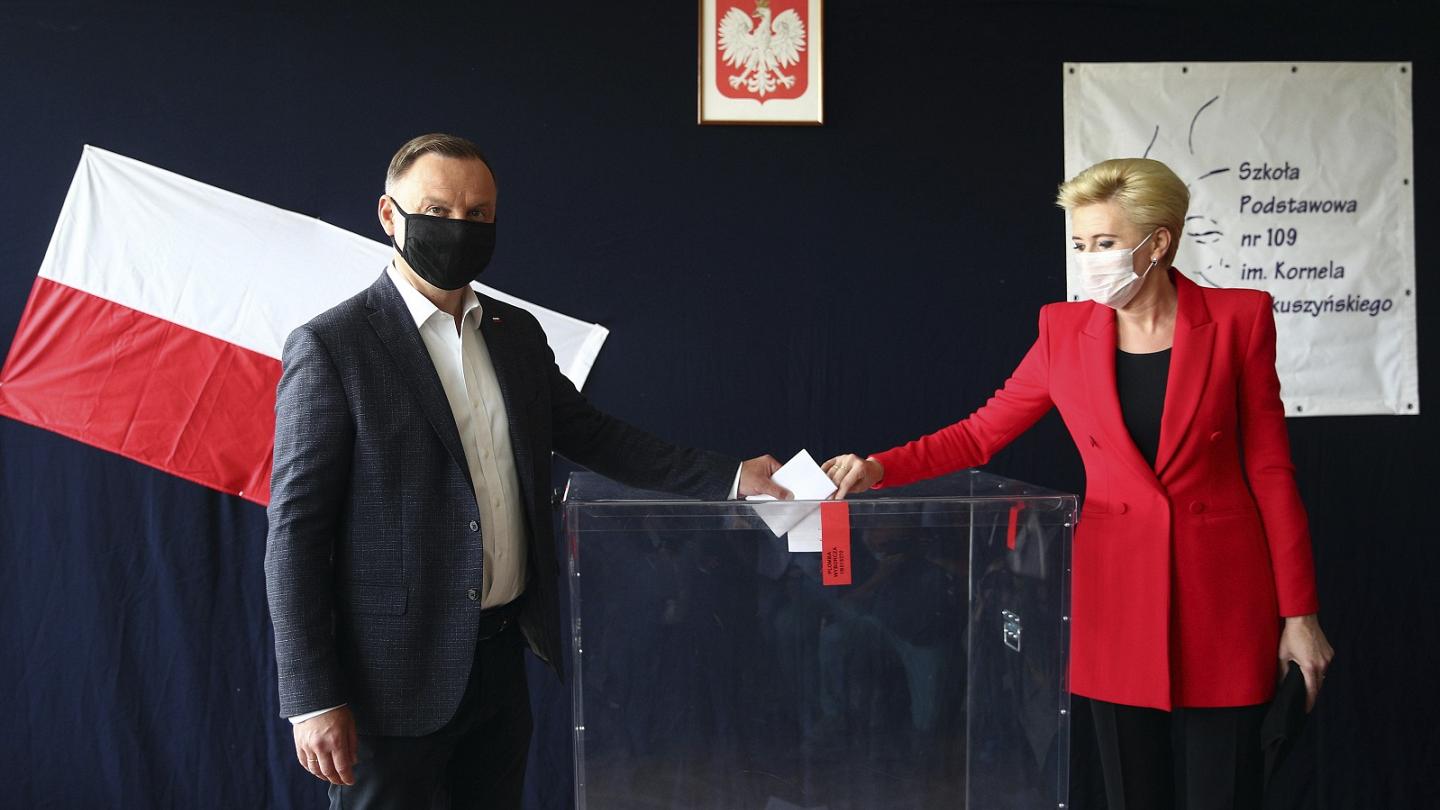Voters in Poland will decide a tight runoff election on Sunday between populist incumbent President Andrzej Duda and his liberal pro-European Union challenger, Warsaw Mayor Rafał Trzaskowski.
Recent opinion polls show a race so close that it could hinge on a narrow margin of voters, which added urgency to the final days of campaigning in the central EU nation of 38 million people.
If Duda is reelected, he and the right-wing Law and Justice (PiS) party that backs him will maintain a hold on almost all key instruments of power in the country, possibly until the next parliamentary election, which is scheduled for 2023.
The party’s welfare policies have helped reduce income inequality, creating reservoirs of admiration, especially in rural areas where the party’s attachment to Roman Catholic traditions also goes far.
But PiS has exacerbated divisions in society with rhetoric marginalising liberals, the LGBT+ community and other minority groups. It has also drawn criticism from some EU leaders for laws that increase political influence over Poland’s justice system.
A victory for Trzaskowski, who belongs to the main opposition party, Civic Platform (PO), would give him veto power over the laws passed by the ruling party. Also, since the Polish president represents the country abroad, Trzaskowski would bring a more pro-European side of Poland to European forums.
“If Trzaskowski wins, it will be a clear sign that the society has had enough and wants a kind of politics where compromise is a value,” said Wojciech Przybylski, editor in chief of Visegrad Insight, a policy journal focused on Central Europe.
Duda and Trzaskowski, both 48, eliminated nine other candidates in the first round on June 28. Duda got 43.5 per cent support and Trzaskowski got 30.5 per cent but is expected to pick up many of the votes that went to other candidates in the first round. There are nearly 30 million eligible voters and the new president will serve a five-year term.
Duda has the support of the powerful ruling party leader, Jaroslaw Kaczynski and prime minister, Mateusz Morawiecki.
He has travelled across Poland visiting open-air markets and vowing to protect the government’s signature spending policies. He was especially well-received in farming regions and small towns, where government-paid bonuses have helped alleviate poverty and have given families with children more money to spend.
“This election will decide Poland’s development in the future, whether it will continue on the path to development,” Duda said at a rally in Starachowice, an industrial town of 50,000 in central Poland.
Duda has claimed that Trzaskowski would cut the popular welfare spending programs — but Trzaskowski has vowed to preserve them, acknowledging the “mistake” his pro-business party made in not introducing such help earlier.
Sunday’s vote, just like the first round, will be held under strict sanitary conditions.
Voters must wear masks and gloves, maintain a safe distance, and use hand sanitizer. They can use their own pens to mark ballots. Election officials must wear masks and sit apart from each other, and ballot boxes will be regularly disinfected in well-ventilated polling stations.
Morawiecki, the prime minister, said the virus is “retreating” and urged everyone to vote, which was seen as encouraging Duda’s older supporters, some of whom did not vote in June’s first round out of health concerns.
“The political situation is tense, the outcome may be a very close call, and that has pushed the coronavirus theme into the background,” Jarosław Flis, a political scientist with the Jagiellonian University in Krakow, was quoted as saying by the Gazeta Prawna newspaper.
Concerns were raised in the first round that some voters outside the country were disenfranchised because many mail-in ballots reached voters too late.
Trzaskowski won 48.1 per cent of votes cast from abroad, while Duda got 20.9 per cent, according to official results.













